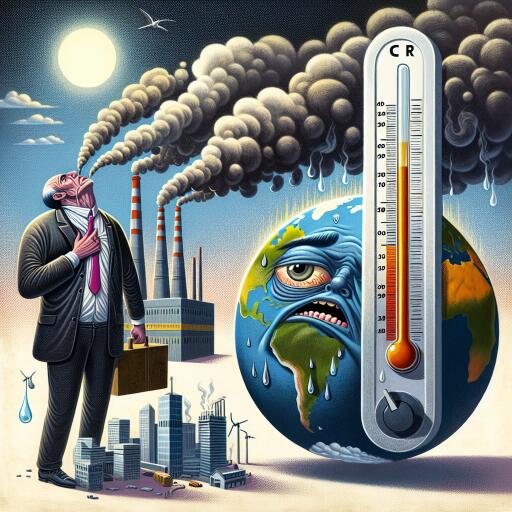
Rich Nation Hypocrisy Accelerating Global Heating
The conversation on climate change often points towards a collective responsibility for the planet’s worsening health. However, a closer look reveals a grim truth: the most affluent nations, who should be leading by example, are exacerbating the climate crisis, leaving the vulnerable in a perilous state.
Climate Injustice: A Divided Burden
While dialogue on climate action speaks of collective effort, the reality starkly contrasts with the principle of fairness. Wealthy nations leverage their historic and ongoing contributions to global emissions under the guise of shared responsibility, overshadowing the disproportionate impact their luxury has had on the climate. These nations institute policies under the guise of equity—like the Carbon Border Adjustment Mechanism—that ironically place a heavier load on the shoulders of developing countries, widening the gap of global inequality.
The Flawed Efficacy of Market Solutions
Market-based approaches such as carbon pricing and emissions trading are frequently touted as solutions to the climate conundrum. Yet, these strategies inadvertently penalize poorer nations, restricting their ability to undertake meaningful climate actions due to financial constraints. Developed countries, in a twist of irony, often relocate pollution-heavy industries to the global South. This maneuver exports emissions and outsources environmental degradation, all while maintaining a facade of cleanliness back home.
A global agreement stands to limit the temperature rise to 1.5°C above pre-industrial levels, necessitating a sharp cut in emissions. However, projections by the Intergovernmental Panel on Climate Change (IPCC) paint a grim picture of a potential 2.7°C increase by 2100, signaling a pathway to disaster unless drastic actions are taken. Instead of upfront emission reductions, the conversation is strategically shifted towards ‘net-zero’ targets by 2050, a delay tactic ignoring the immediacy the climate emergency demands.
The Illusion of Carbon Pricing
One of the main issues with carbon taxes and pricing is the lack of consensus on how the generated revenue should be redistributed, particularly to aid poorer nations in their climate endeavors. These mechanisms have been criticized for their insufficient impact on reducing emissions and their negligible coverage of global greenhouse gases, often subject to discount rates far lower than the real cost of carbon’s externalities.
Moreover, carbon pricing often becomes a regressive tax—disproportionately impacting those less economically stable, within and across nations. Without a forward-looking reallocation of resources, developing countries and their populations remain ill-equipped to adapt to climate impacts and contribute to global mitigation efforts.
Compounding the problem, government support for fossil fuels in various forms, including subsidies intended to counter geopolitical tensions, directly undermines the potential effectiveness of carbon pricing mechanisms. Consequently, rather than functioning as a deterrent, these policies often result in a net subsidy for carbon emissions.
Net-Zero or Net Nada?
The surge in carbon offset markets comes under fire, too, criticized for enabling continued emissions under the guise of achieving ‘net-zero’. Far from a genuine effort towards decarbonization, many such initiatives end up lining the pockets of financial intermediaries, offering little in terms of substantive climate action.
Despite the fervor around finance and investment initiatives aimed at achieving net-zero, the failure of significant actors to follow through on commitments—such as moving away from coal—exemplifies the hollow nature of these promises.
Seeking Genuine Solutions
The narrative promoting carbon pricing and offset markets as the panacea for climate woes stands on shaky ground. Real progress hinges on a shift towards substantive investment in green technologies and robust financial support for adaptation and mitigation strategies in the developing world. Such efforts must be pragmatic, recognizing the complex socio-economic fabrics and the multifaceted challenges of sustainable development.
Effectively combating climate change necessitates a departure from superficial market mechanisms towards a comprehensive strategy that emphasizes profound emission reductions and prioritizes support for communities at the frontline of the climate crisis. Only through equitable and thoughtful action can we hope to address the dual challenges of climate change and social inequality.





Leave a Reply